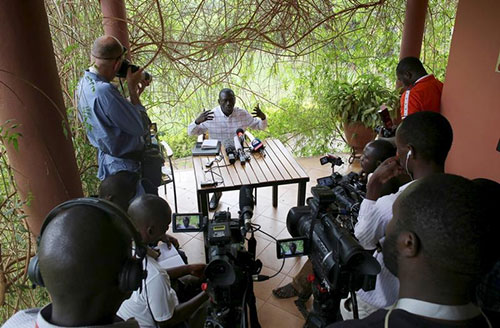
After disputed Uganda election, journalists fear prolonged crackdown
Twenty nine-year-old photographer Abubaker Lubowa was excited when he was assigned to cover the campaign of opposition leader Kizza Besigye. He told CPJ he did not anticipate that the assignment would mean he would make the news almost as often as he covered it.
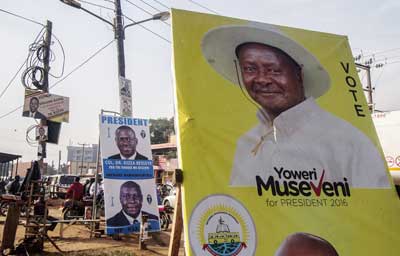
Uganda elections approach amid hostile environment for media
Demonstrations against the government are a routine affair in the Ugandan capital Kampala, and Andrew Lwanga thought it would be just another day at work when he was assigned to cover a protest march by a few dozen unemployed youth on January 12, 2015.
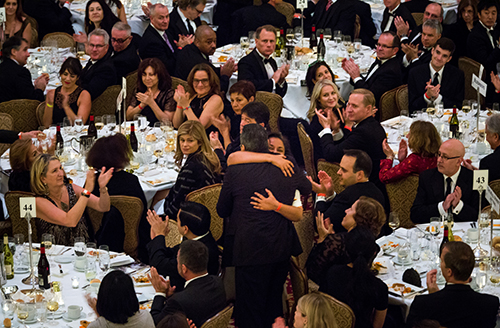
‘They wanted me to say I was wrong’: Freed Ethiopian journalist on why 1,500 days in jail failed to silence her
Reeyot Alemu, an Ethiopian journalist who worked for the independent weekly Feteh, spent almost 1,500 days in prison after being arrested in June 2011 and charged with terrorism in 2012. She was released unexpectedly in July.
From Charlie Hebdo in Paris to bloggers in Bangladesh, extremists target press
Thursday marks one year since two gunmen burst into the Paris offices of satirical magazine Charlie Hebdo and opened fire. Over the following year, CPJ documented the deaths of 28 journalists who were killed for their work by Islamic militant groups such as Islamic State and Al-Qaeda. This StoryMap charts the deadly attacks that took…
CPJ joins call for Nigeria to drop anti-social media legislation
The Committee to Protect Journalists alongside 19 Nigerian, African and international organisations today signed an open letter addressed to the upper chamber of Nigeria’s parliament calling for the rejection of a bill which would undermine press freedom, stifle public opinion, and criminalize freedom of expression in Nigeria.
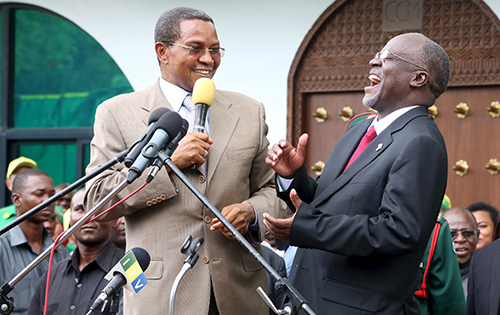
Tanzania’s press wait to see if new president will reform troubling media laws
Elections in Tanzania passed smoothly in October, but several local journalists and a media lawyer told me the spectre of anti-press laws is casting a pall over critical reporting in the country and that hopes for legal reform under the newly elected President John Pombe Magufuli remain muted.

In Ethiopia, drawn out Zone 9 trial serves to further punish bloggers
On Friday the Zone 9 bloggers are due to appear in court in Ethiopia for the 39th time since their arrest in April 2014. Endalk Chala, a co-founder of the group which is being honored with an International Press Freedom Award from CPJ this year, provides an overview of the drawn out trial and finds…
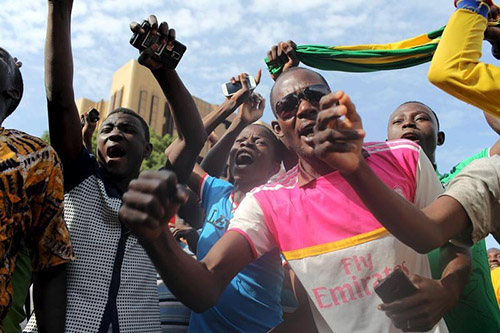
Resistance over the airwaves: Pirate station’s vital role during Burkina Faso coup
Radio Resistance was a pirate radio station born out of necessity. During Burkina Faso’s short-lived military coup last month, in which many local radio stations were forced off air, it kept citizens informed and gave them the courage to stand up against the attempted takeover, Burkinabe journalists said.
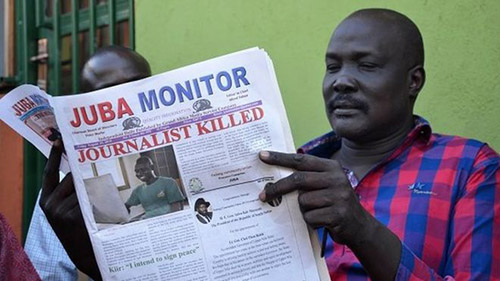
Shooting of freelance reporter increases fear for South Sudan’s press
Freelance journalist Peter Julius Moi used to ride a motorbike without wearing a helmet, despite warnings from one of his colleagues to be more careful. Moi would just shrug off those concerns, saying that as a South Sudanese journalist “risk was simply part of life.” Last month, the reporter was shot dead as he walked…
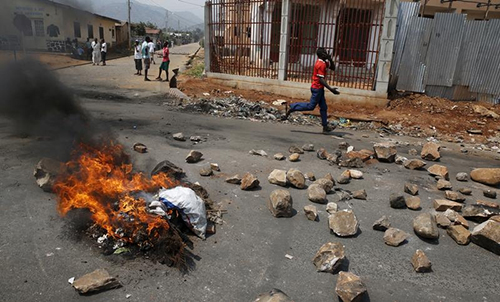
Silence in Burundi as violence forces independent press into exile
On June 24, a grenade was thrown through the window of Voice of America correspondent Diane Nininahazwe’s home. It was one of three cases CPJ has documented in recent months where grenades were thrown into the homes of journalists in Burundi’s capital, Bujumbura. Fortunately, there have been no fatalities, but there have also been no…